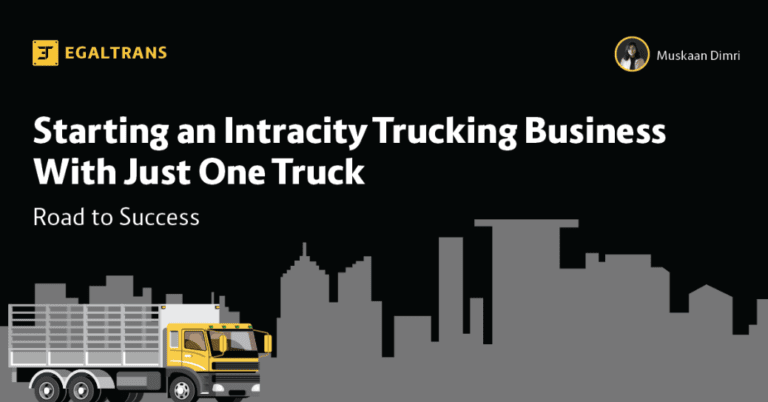The trucking industry is undergoing a significant transformation driven by technological advancements, regulatory changes, and evolving economic dynamics. Amidst this change, a critical question arises: Will developing skills of truck drivers benefit them, or will it push them out of the profession? Truck driver skill development is a multifaceted topic, involving aspects of job security, career progression, and the future landscape of the industry.
Benefits of Truck Driver Skill Development
Skill development is crucial as it enhances employability, adaptability, and personal growth. In a rapidly changing job market, having up-to-date skills makes individuals more competitive and better prepared for new roles and industries. It also drives economic growth by increasing workforce productivity and fostering innovation. Benefits for truck drivers can encompass a variety of aspects, including physical, mental, and professional advantages. Here are some key benefits:
- Enhanced Job Security and Adaptability
As technology progresses, the trucking industry increasingly relies on advanced systems such as telematics, autonomous driving technology, and sophisticated logistics software. Truck drivers equipped with the knowledge to operate these technologies are more likely to secure their positions. They become indispensable assets to companies looking to integrate new technologies into their operations. Skill development in areas like digital literacy, understanding of autonomous systems, and advanced logistics can make drivers more adaptable to changing job requirements, thus enhancing their job security.
- Career Progression and Diversification
By acquiring new skills, truck drivers can open doors to various career opportunities within the industry. For instance, a driver with knowledge of fleet management software could transition into a managerial role, overseeing logistics and operations. Similarly, expertise in mechanical repairs and maintenance could lead to specialized positions within maintenance departments. This diversification allows drivers to explore different career paths, potentially leading to higher pay and job satisfaction.
- Improved Safety and Efficiency
Skill development often includes training on safety protocols and efficient driving practices. Drivers who are well-versed in these areas can contribute to reducing accident rates and improving overall efficiency. For instance, understanding how to use advanced driver-assistance systems (ADAS) can help prevent collisions, while training in fuel-efficient driving techniques can lead to cost savings for both drivers and companies.

Potential Downsides
Skill development is a vital aspect of any profession, including truck driving, as it enhances efficiency and safety on the road. However, there are potential downsides associated with skill development among truck drivers. Here are some key challenges:
- Technological Displacement
While skill development can help drivers adapt to new technologies, there is a looming threat of technological displacement. Autonomous trucks, though not yet fully operational, pose a potential risk to traditional driving jobs. As automation becomes more prevalent, the need for human drivers may decrease. Drivers who invest time and effort into developing skills for roles that might soon be automated could find themselves at a crossroads, questioning the longevity of their career in driving.
- Increased Pressure and Responsibility
With additional skills come additional responsibilities. Drivers who have acquired advanced skills may be expected to handle more complex tasks, which could lead to increased pressure and stress. For instance, managing sophisticated logistics software or maintaining advanced vehicle systems could require continuous learning and adaptation, potentially leading to burnout.
- Economic Barriers to Skill Development
Investing in skill development often requires time and financial resources. Not all drivers may have access to the necessary training programs or the means to afford them. This economic barrier can create a divide within the workforce, where only those who can afford to upskill benefit, leaving others behind. This disparity can lead to frustration and could potentially push some drivers out of the industry if they feel unable to compete.
Also Read: 5 Reasons Why Fleet Owners Must Invest in Truck Driver Training
Balancing the Future of Industry with Truck Driver Skill Development
The future of the trucking industry hinges on finding a balance between embracing technological advancements and supporting the workforce. Policymakers, industry leaders, and training institutions must collaborate to create accessible and affordable training programs. These programs should not only focus on technological skills but also offer support in areas like financial planning and career transition, preparing drivers for various future scenarios.
Furthermore, there needs to be a concerted effort to manage the pace of automation integration. Gradual implementation, accompanied by comprehensive retraining programs, can help mitigate the risks of technological displacement. Ensuring that drivers have a clear understanding of how their roles will evolve and providing pathways to alternative careers within the industry can help in managing the transition smoothly.
Truck driver skill development can indeed offer significant benefits, enhancing job security, career progression, and safety. However, it also comes with potential downsides, including the risk of technological displacement, increased responsibility, and economic barriers. The key to maximizing the benefits while minimizing the downsides lies in strategic planning, accessible training programs, and a balanced approach to technological integration. By addressing these factors, the trucking industry can ensure that its workforce remains resilient and adaptable in the face of inevitable change.
What are your thoughts? Tell us in comments below.






